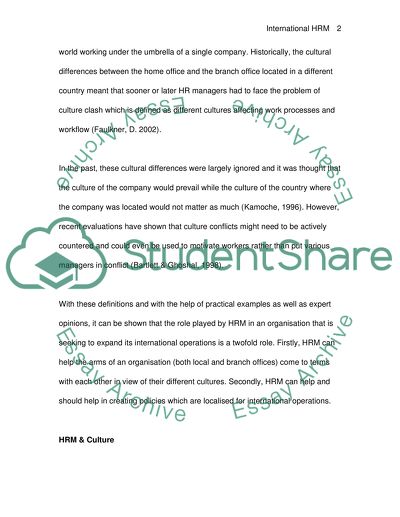Cite this document
(The Changing Role of Human Resource Management Term Paper, n.d.)
The Changing Role of Human Resource Management Term Paper. Retrieved from https://studentshare.org/human-resources/1540209-what-role-can-and-should-hrm-play-in-an-organization-that-is-seeking-to-expand-its-international-operations
The Changing Role of Human Resource Management Term Paper. Retrieved from https://studentshare.org/human-resources/1540209-what-role-can-and-should-hrm-play-in-an-organization-that-is-seeking-to-expand-its-international-operations
(The Changing Role of Human Resource Management Term Paper)
The Changing Role of Human Resource Management Term Paper. https://studentshare.org/human-resources/1540209-what-role-can-and-should-hrm-play-in-an-organization-that-is-seeking-to-expand-its-international-operations.
The Changing Role of Human Resource Management Term Paper. https://studentshare.org/human-resources/1540209-what-role-can-and-should-hrm-play-in-an-organization-that-is-seeking-to-expand-its-international-operations.
“The Changing Role of Human Resource Management Term Paper”. https://studentshare.org/human-resources/1540209-what-role-can-and-should-hrm-play-in-an-organization-that-is-seeking-to-expand-its-international-operations.


